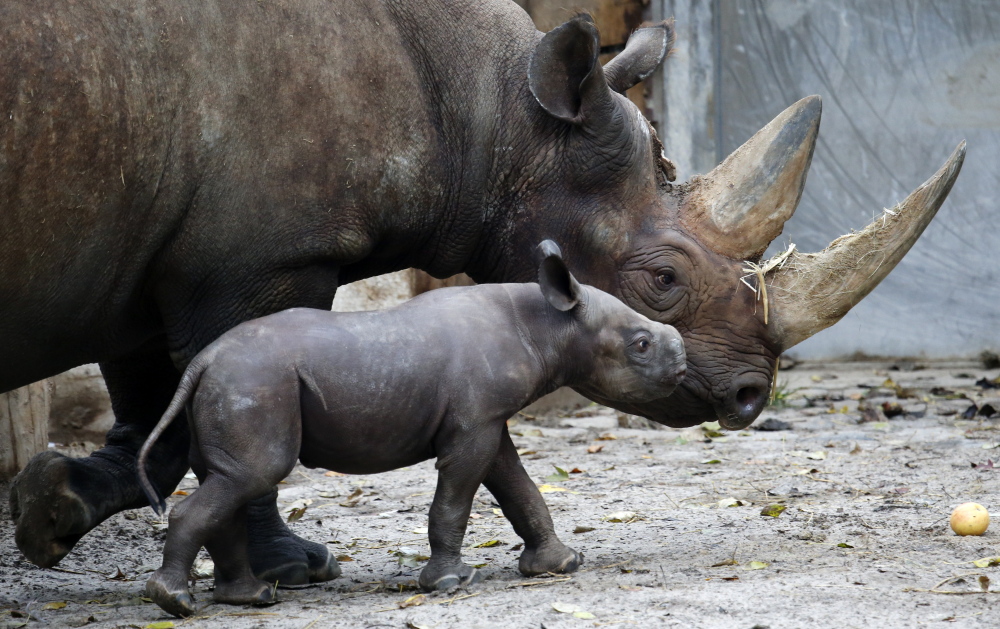JOHANNESBURG — A record 1,020 rhinos have been killed by poachers for their horns in South Africa this year, more than all of 2013 and triple the number four years ago.
Kruger National Park, a reserve the size of Israel, has seen 672 rhinos killed since Jan. 1. A total of 1,004 were slaughtered throughout the country in 2013, the Department of Environmental Affairs said Thursday in a statement. The horns are more valuable than gold by weight. Prices for a kilogram of rhino horn range from $65,000 to as much as $95,000 in Asia.
“The South African government recognizes that the ongoing killing of the rhino for its horns is part of a multi-billion dollar worldwide illicit wildlife trade and that addressing the scourge is not simple,” the department said.
Demand for rhino horns has climbed in Asian nations including China and Vietnam because of a belief that they can cure diseases such as cancer. South Africa has taken measures including setting up an protection zone within Kruger Park, using new technology, intelligence, and moving rhinos to safe areas within South Africa and other countries where they live.
Poachers killed 333 rhinos in 2010 and 668 in 2012, said Albi Modise, spokesman for the Department of Environmental Affairs.
“Government will continue to strengthen holistic and integrated interventions and explore new innovative options to ensure the long-term survival of the species,” said Modise.
Authorities have made a record number of arrests for poaching and related activities, according to the department. A total of 344 alleged rhino poachers, couriers and poaching syndicate members have been apprehended this year, compared with 343 in all of last year.
Most rhinos in South Africa are white rhinos, the bigger of the two types of the animal found in Africa.
The horns are largely made up of keratin, a substance similar to human hair.
Copy the Story LinkSend questions/comments to the editors.



Success. Please wait for the page to reload. If the page does not reload within 5 seconds, please refresh the page.
Enter your email and password to access comments.
Hi, to comment on stories you must . This profile is in addition to your subscription and website login.
Already have a commenting profile? .
Invalid username/password.
Please check your email to confirm and complete your registration.
Only subscribers are eligible to post comments. Please subscribe or login first for digital access. Here’s why.
Use the form below to reset your password. When you've submitted your account email, we will send an email with a reset code.